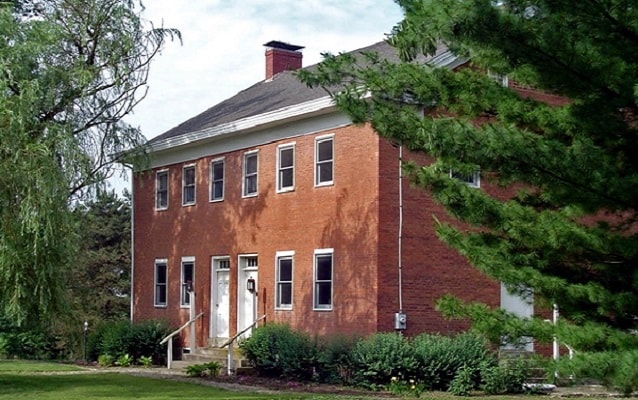Last updated: February 7, 2018
Place
White Water Shaker Village

Photo by Jose Kozan
The White Water Shaker Village, in New Haven, Ohio, was the fourth and last Shaker community established in Ohio. It was established in 1825 with 18 people on only 40 acres of land. It was a typical Shaker village in that it comprised of the North, South, and Center families. The first buildings were originally made out of logs and were gradually replaced with typical Shaker clapboard and brick buildings. The first brick building, the Meetinghouse, was built in 1827. It served multiple functions in this small community. The first floor was used for religious services, living quarters were on the second floor, and the third floor was used as an attic.
The South Family Dwelling House was built by a locally prominent family, which was unusual. It was inherited by a woman who later joined the Shaker society. Most buildings in White Water, however, were built by the Shakers. At the turn of the 20th century a visitor to the village, A. D. Emerich, proclaimed it to be "the best collection of Shaker buildings in private hands in America."
White Water’s economy was based on seed production and the manufacture of brooms and mats. Members also worked at the Milk House, the barns, the Laundry House, or other places to help sustain the community as a whole. In turn, these industries allowed the White Water Shaker community to practice and prosper into the early 20th century.
